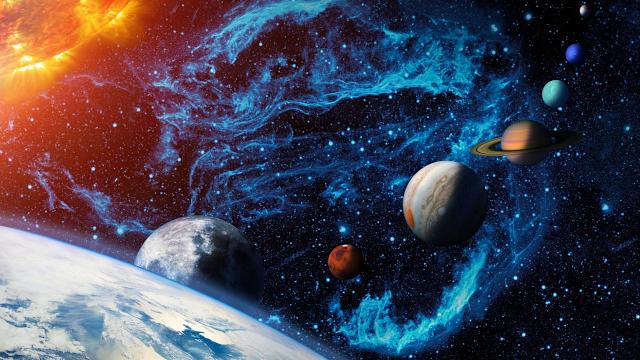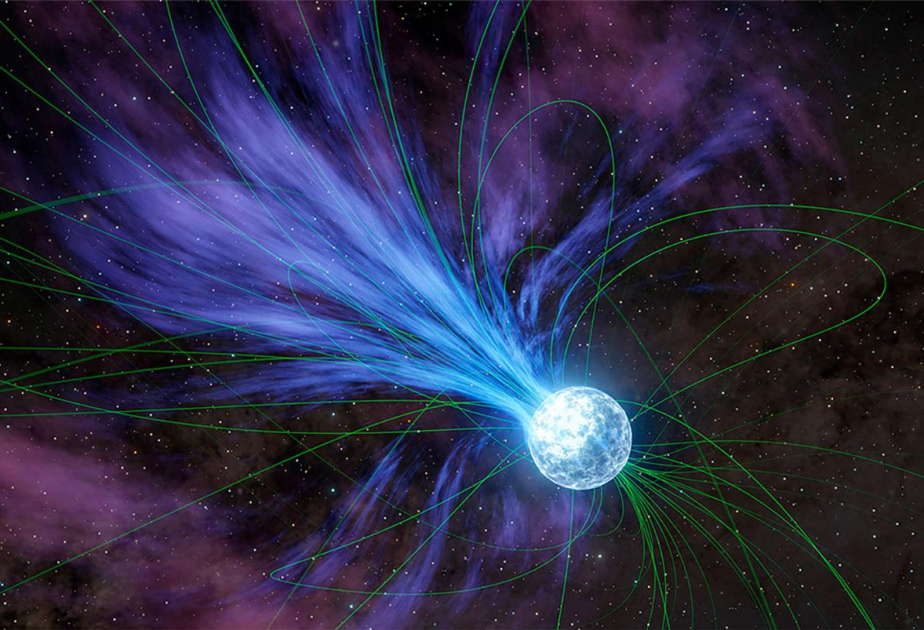There are some scientific discoveries that do much more than advance our knowledge: they create a shift in our psyche as they show us the scale of the Universe and our place in it.One such moment was when space craft sent back images of the Earth for the first time. Another is the discovery of life on another world, a moment that has inched a little closer today with the news that signs of a gas, which on Earth is produced by simple marine organisms, has been found on a planet called K2-18b.Now, the prospect of really finding alien life - meaning we are not alone in the Universe - is not far away, according to the scientist leading the team that made the detection.This is basically as big as it gets in terms of fundamental questions, and we may be on the verge of answering that question.
All of this prompts even more questions, including, if they do find life on another world, how will this change us as a species?
Our ancestors have long created stories of beings that might dwell in the skies. In the early 20th Century, astronomers thought they could see straight line features on the Martian surface, raising speculation that one of our nearest planets might be home to an advanced civilisation: an idea that spawned a wealth of pulp science fiction culture involving flying saucers and little green aliens.It was during an era when western governments generated fear of the spread of communism, so visitors from outer space were more often than not portrayed as menaces, bringing peril rather than hope.But decades on, what has been described as "the strongest evidence yet" of life on another world has come, not from Mars or Venus, but from a planet hundreds of trillions of miles away orbiting a distant star.
Part of the challenge when it comes to researching the existence of alien life is knowing where to look.Until relatively recently, the focus for Nasa's search for life was Mars, but that began to change in 1992 with the discovery of the first planet orbiting another star outside of our solar system.Although astronomers had suspected that there were other worlds around distant stars there had been no proof until that point. Since then, nearly 6,000 planets outside our solar system have been discovered.
Many are so-called gas giants, like Jupiter and Saturn in our solar system. Others are either too hot or too cold to support liquid water, thought to be essential for life.But many are in what astronomers call "The Goldilocks Zone" where the distance is "just right" to support life. Prof Madhusudhan believes there could be thousands in our galaxy.But the spacecraft are not designed to find life itself. Instead, these missions lay the ground for future missions which will, according to Prof Michele Dougherty of Imperial College, London.
Just is so thick that there is no way you can get underneath the surface. And so, it's a long, slow burn, but it's pretty exciting en route.Nasa is also send an spacecraft called Dragonfly to land on one of the moons of Saturn, Titan in 2034. It is an exotic world with what are thought to be lakes and clouds made from carbon-rich chemicals which give the planet an eerie orange haze.Prof Dougherty is one of the leading planetary scientists in her field.
Dr Robert Massey, who is the deputy executive director of the Royal Astronomical Society, agrees that the emergence of intelligent life on another world is much less likely than simple life.When we see the emergence of life on Earth, it was so complex. It took such a long time for multi-cellular life to emerge and then evolve into diverse life forms.The big question is whether there was something about the Earth that made that evolution possible.
Do we need exactly the same conditions, our size, our oceans and land masses for that to happen on other worlds or will that happen regardless?
He believes that the discovery of even simple alien life would be the latest chapter in the diminution of humanity's place in the cosmos.As he puts it, centuries ago, we believed we were at the centre of the Universe and with each discovery in astronomy we have found ourselves "more displaced" from that point.They think the discovery of life elsewhere it would further reduce our specialness.
For many years, NASA’s search for life beyond Earth focused primarily on our own solar system, particularly the planet Mars. However, as technology advanced and space telescopes grew more powerful, the scope of exploration expanded far beyond nearby worlds. Scientists began to turn their attention to the vast reaches of the galaxy, where thousands of distant planets known as exoplanets have since been identified. Some of these alien worlds lie within the so-called “habitable zone,” where conditions might allow liquid water and possibly life to exist.
Prof Dougherty, on the other hand, believes that such a discovery in our own solar system would be good for science, and good for the soul.Never before have scientists searched so hard for life on other worlds and never before have they had such incredible tools to do this with. And many working in the field believe that it is a matter of when, rather than if, they discover life on other worlds. And rather than bringing fear, the discovery of alien life will bring hope, according to Prof Madhusudhan.
Madina Mammadova\\EDnews










